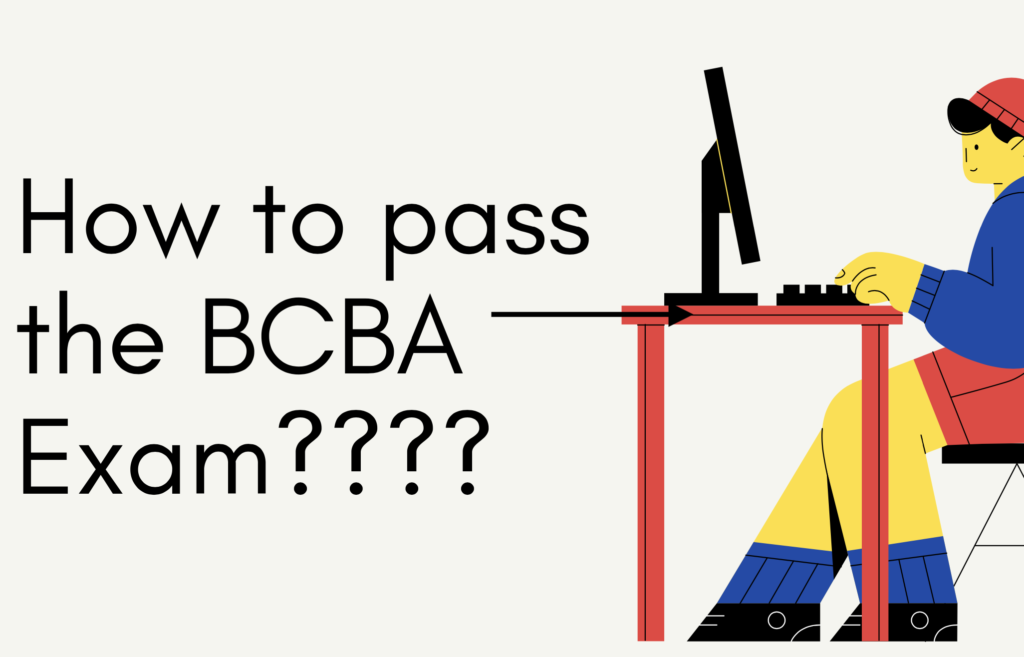Due to the nature of ethics, the purpose of ethics is to guide our practice and each individual BCBA will have their own professional interpretation of each ethical code item. It is recommended that the reader access the ethical code listed on the BACB website and do their own due diligence by abiding by the ethical code. With that being said, this section will only cover ethics which provides objective information. In this blog, you will get a better understanding of what section E in the BCBA exam includes and some terms you might use in the exam.
First, you need to know the four foundational principles which all behavior analysts should strive to embody.
- Benefit others
- Producing meaningful and socially significant change for the individuals that we work with while doing no harm.
- Treat Others with Compassion, Dignity, and Respect
- Using an equitable approach to your clinical practice and respecting the client as a person, a unique individual, and a valued member of society
- Behave with Integrity
- This aspect focuses on the truthfulness of the individual delivering a behavior service and that they are using professional judgment in making sound decisions based on their education, experience, and expertise.
- Ensure Competence
- Focuses on behavior analysts staying within their scope of practice and ensuring that they uphold their credential
The next sections are organized into six ethics standards which are based on the core principle:
- Responsibility as a Professional
- Being truthful
- Practicing with their scope of competence
- Nondiscrimination/nonharassment
- Avoid multiple relationships, exploitative relationships
- Can receive gifts from families/clients with a monetary value of up to 10.00 dollars
- Responsibility in Practice
- Providing effective treatment
- Protecting confidential information
- Obtaining consent
- Considering medical needs first
- Behavior change interventions are based on scientific evidence and assessment results.
- Collecting data
- Responsibility to Clients and Stakeholders
- Responsible to clients
- Accepting clients
- Explaining service agreement
- Documenting professional activity
- Not receiving any compensation for receiving or making referrals
- Discontinuing services if the client has met the goal
- Responsibility to Supervisees and Trainees
- Knowledgeable of all supervision requirements
- Only provide supervision on concepts they are competent in supervising
- Only take on the number of supervisees they can effectively provide supervision on
- Supervision records are maintained for 7 years minimum
- Performance monitoring and feedback
- The plan for the termination of the supervisory relationship will be mutually agreed upon by the supervisee and the supervisor
- Responsibility in Public Statements
- Protecting the rights and confidentiality of clients
- Sharing truthful information
- Not soliciting testimonials from current clients
- Not sharing client information on personal social media accounts
- Responsibility in Research
- Conforming with laws and regulations
- Conducting research after a research review panel has approved it
- Receiving informed consent after reviewing the purpose and intention of the research in full detail
- Confidentiality
- Conducting research only in areas in which they are competent in
- Following all applicable rules and laws regarding documenting and retaining data
Last but not least, this section provides the terms you’ll need for the BCBA exam.
Assent: Individuals who are unable to give informed permission may express their willingness to participate in research or behavioral services via vocal or non-vocal verbal behavior.
Client: The direct recipient of the behavior analyst’s service. In some contexts, the client might be a group of individuals. (e.g., with organizational behavior management services)
Stakeholder: An individual, other than the client who is impacted by and invested in the behavior analyst’s services. (e.g., parent, caregiver, relative, legally authorized representative, etc.)
Supervisee: An individual whose behavioral service delivery is overseen by a behavior analyst within the context of a defined, agreed upon relationship.
Trainee: Any individual accruing fieldwork/experience toward fulfilling eligibility requirements for BCaBA or BCBA certification.
Third Party: Any individual, group of individuals, or entity who requests and funds services on behalf of a client or group of clients.
Multiple Relationship: A comingling of two or more of a behavior analyst’s roles with a client, stakeholder, supervisee, trainee, research participant, or someone closely associated with or related to the client.
Informed Consent: The permission given by an individual with the legal right to consent before participating in services or research, or allowing their information to be used or shared.
Scope of Competence: The professional activities a behavior analyst can consistently perform with proficiency.





